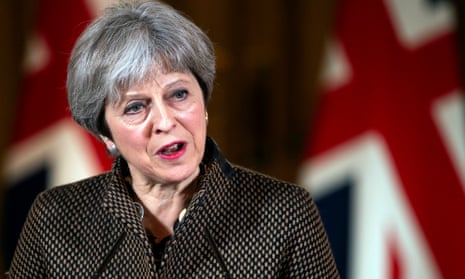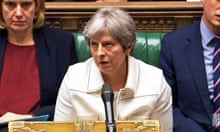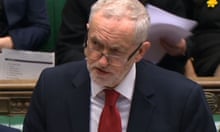Theresa May’s essential argument that the bombing in Syria in the early hours of Saturday was “strong enough to deter but weak enough not to provoke the Russians” is so obviously nonsensical it explains why she didn’t wish to make it in parliament.
This was “gesture bombing” of carefully selected second-order military installations, to be seen to be doing something – but not too much – in response to Bashar al-Assad’s apparent chemical weapons attack, enabled by the Russians, on civilians in the Damascus enclave of Douma last week.
Donald Trump called it “precision strikes on targets associated with the chemical weapon capabilities of Syrian dictator Bashar al-Assad”. Decoded, that means attacks carefully targeted not only to minimise civilian casualties – which so often discredit action of this kind as reporters are guided to the sites of strikes by the dictator being attacked – but more particularly to avoid provoking Vladimir Putin into a “disproportionate response” (the sanitised diplomatic language of these situations).
Time and time again Putin has shown his contempt not only for international law (witness Crimea and Salisbury) and chemical weapons conventions (witness Syria and Salisbury), but also western power and pretensions – witness his dismemberment of Ukraine.
The west clearly has to contend with a massive Putin problem and threat – as well as unspeakable war crimes in Syria, where Putin is propping up Assad – and a humanitarian catastrophe that engages the west morally and directly, because of the ongoing refugee crisis that Syria is inflicting on its neighbours and Europe.
The case that could be made for May is that we in Britain have recently been attacked by the Russians and are threatened by Putin at large. Trump and Emmanuel Macron supported us in expelling Putin diplomats after Salisbury. They were intent on these limited airstrikes in Syria, to appease domestic pressures, so we had to support them.
But having decided to do so, May couldn’t risk a parliamentary debate, partly because her arguments are weak, but also because, with a hung parliament and Labour under Jeremy Corbyn so unwilling to play conventional politics, the vote might have been lost.
The August 2013 Commons vote, when MPs rejected David Cameron’s motion to support bombing Syria in similar circumstances, will have weighed heavily with May and Tory whips. There were no constitutional or security reasons for parliament to have been sidelined this time. On the contrary, there were compelling constitutional arguments why MPs should have been consulted.
The cabinet met with full publicity on Thursday to authorise the action. Parliament could have been summoned for Friday, entirely consistent with undertaking the bombing in the evening, had there been a majority for action.
Had May made the basic “back Trump against Putin” case, and no other, in the Commons, I suspect she would have rallied Tory MPs and the DUP to avoid a defeat, on the assurance that this action was one-off.
It is a vital British and European interest to demonstrate to Putin that Trump is on our side, not his. Our security and defence services are rightly concerned that Putin may not understand this and might thereby seriously miscalculate, perhaps by invading the vulnerable Baltic states in a widening of his Ukrainian enterprise and quest for nationalistic glory.
The problem for May is that she can hardly say any of this in parliament. She has to make humanitarian and strategic arguments about the need for the Trump action in order to help Syria itself and eradicate chemical weapons. But these arguments do not exist.
The bloodshed and conflict in Syria are not largely caused caused by chemical weapons, however abhorrent. Other weapons are destroying hundreds of thousands of people, and their communities, with impunity. Trump, Macron and May have made clear that they intend neither to intervene in Syria more widely, nor to engage in direct conflict with the Russians over chemical weapons. So this is not a prelude to a western strategy to topple Assad and seek an end to the civil war or chemical weapons.
Is there a moral case for the action, even if it did little or nothing to help Syria? Hardly. We have moral duties to the dispossessed – and should be taking our fair share of Syrian refugees, particularly parentless children. We aren’t. And May did not propose to do so in her press conference. That is the really shameful non-action of our government.









